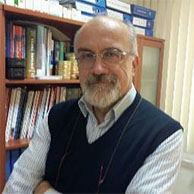



Most scientific studies have pointed out that there has been an increasing deterioration in sperm quality in recent years. Here, too, we see that the role of environmental factors comes to the fore. It has been shown that many factors such as electromagnetic waves, smoking, air pollution, long-term contact with pesticides reduce the chance of having children or cause later fecundity. The mentioned factors basically degrade the genetic material of the sperm, reducing the fertilization capacity or preventing to sustain a healthy pregnancy. One of the factors that cause deterioration in the genetic structure of sperm is known as DNA damage. When sperm cells mature in the testis and begin their journey towards the egg, they go through a very sensitive process. At this very moment, if the factors mentioned above occur, DNA damage develops. The capacity of such a sperm to fertilize the egg is significantly reduced.
Studies conducted on couples treated for infertility revealed that sperm DNA damage carries a higher risk, especially in older women. The data obtained from women over the age of 40 undergoing IVF show that if the rate of sperm carrying damaged DNA is high, embryo development is impaired, the probability of conception is reduced by about 3 times, and the probability of miscarriage is much higher. The underlying problem is that DNA damage in the sperm cannot be repaired by the egg. Normally, most men can develop DNA damage at varying rates. However, when such a sperm enters the egg, the egg is activated and can repair such damages in the sperm DNA. On the contrary, if the strength of the egg is weakened, as a result of this repair being insufficient, the embryo development is impaired and it becomes difficult to get pregnant. It is known that there is a significant decrease in the quality of the egg as the woman gets older, and when such an egg consumes its available energy in repairing the damaged sperm, its power to support the development of the embryo also decreases. Both the weakening of the egg and the damaged structure of the sperm genetics pose a serious risk for the development of a healthy pregnancy. This also explains the reason for the decrease in IVF success and the increase in pregnancy losses in older women whose spouses have high sperm DNA damage. As a matter of fact, there is a significant increase in the frequency of miscarriage in IVF trials with poor sperm quality.
Whether the genetic material of the sperm is damaged or not cannot be determined from standard semen analysis. For this, special tests using different techniques have been developed. According to the characteristics of the test, if the rate of damaged sperm is above the normal value, measures should be taken to correct it. The most important cause of DNA damage is increased oxidative stress. Oxidative stress is not only caused by environmental factors, but also by defects of the sperm itself. Therefore, in the treatment of men, it is necessary to both improve the lifestyle and remove harmful metabolites from the seminal plasma by using antioxidants. With such an approach, it will be possible to increase the success of IVF in women with advanced age or poor ovarian reserve.
You can send your questions to
Prof.Dr. Kaan Aydos
Mahatma Gandhi Caddesi, 19/7 06700 Cankaya, Ankara / TURKEY
+90 312 437 3121 +90 312 508 2258